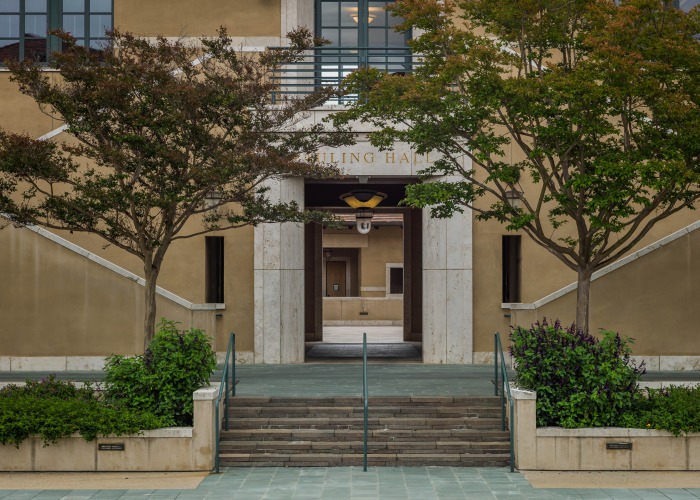Founder's Message - Graduate School Opening
Calabasas, California | September 2, 1994

Makiguchi asserted that the human being must progress from a condition of dependence, to self-reliance, and finally to a contributive way of life.
Message from the Founder
On the Occasion of the Soka University of America, Graduate School Opening
Calabasas Campus, Friday, September 2, 1994
I would like to offer my heartfelt congratulations on the initiation of the graduate studies program at Soka University of America. This is indeed a historic departure, that will be, I am convinced, long-lasting and will make its influence felt over time increasingly. I would also like to express my deep appreciation to the outstanding teaching staff brought together here by their shared ideal of scholarship and learning, the administrative staff, and the worthy members of the inaugural class of the graduate program.
Tsunesaburo Makiguchi, the father of the system of value-creating education, was a man of profound courage and conviction. During the tumultuous first half of this century, he pioneered the cause of humanistic education, aspiring to the ideal of peaceful exchange among the world’s peoples. This year marks the 50th anniversary of his death in prison, and I am deeply moved to imagine the joy with which he would have greeted this brilliant flowering of value-creating education on a global scale.
In his The System of Value-Creating Pedagogy, Makiguchi describes three stages of human development: dependent, self-reliant, and contributive modes of living. A dependent life is one of reliance on the authority and capabilities of others, in which one makes little or no effort to think or act for oneself. It is, in other words, a condition of spiritual laziness. A person who lives in a self-reliant manner may have a clearly defined sense of self and creed, but is prey to alienation and self-aggrandizement. A person who lives a contributive life neither relies on external authority nor lapses into arrogance. In a contributive life, the prime motivation is to contribute to the lives of others and to the realization of their happiness.
Makiguchi asserted that the human being must progress from a condition of dependence, to self-reliance, and finally to a contributive way of life. The mission of Soka University of America is to foster a steady stream of global citizens committed to living a contributive life.
To study and learn, to take on difficult challenges, to continue to take action for the sake of the happiness of your fellow citizens–this is the key to a life that is ever youthful, value-filled, unhindered and expansive.
The study of language and linguistics which you are about to undertake, in particular, is a field of vital importance to the forging of links and the fostering of understanding between peoples, societies and nations. It is my sincere hope that as the members of the first post-graduate class, you will take advantage of your time on this beautiful campus to deepen your understanding of the world and of humanity, and to write here a significant and satisfying chapter in your life’s history.
It can be said with some certainty that change, in all its scope and richness, will be the one constant of your lives from here out. But I hope that you will meet each challenge courageously as you continue to move forward, to explore new paths, and to lead lives of contribution in fulfillment of the unique mission you each possess. And I hope that you will always remember the pride of being a member of this first graduating class.
Daisaku Ikeda
Founder
